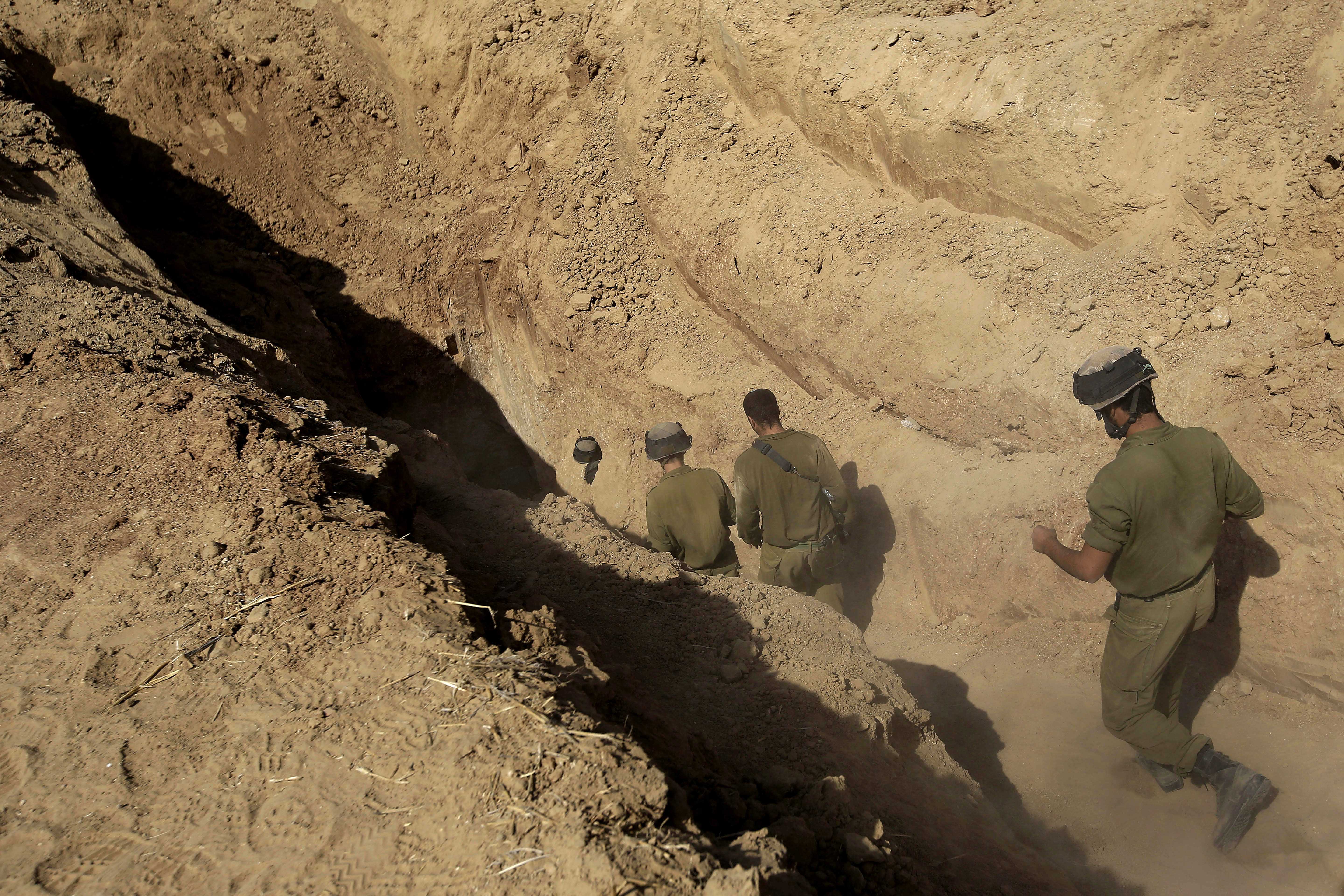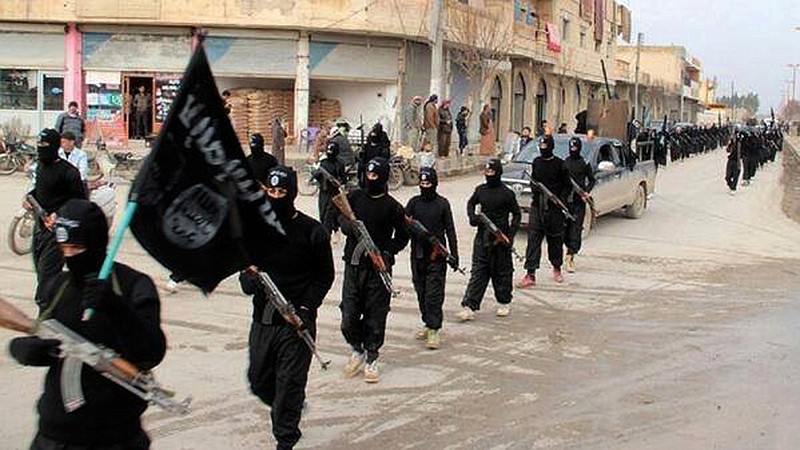 FILE - In this Sunday, Oct. 13, 2013 file photo, Israeli soldiers enter a tunnel discovered near the Israel Gaza border. Israel's military chief Lt. Gen. Gadi Eisenkot said Tuesday, Feb. 9, 2016, that Gaza's Hamas rulers have been rebuilding the sophisticated network of underground tunnels that Israel damaged during the 2014 war. Eisenkot said destroying this network is the military's top priority for 2016. (AP Photo/Tsafrir Abayov)
FILE - In this Sunday, Oct. 13, 2013 file photo, Israeli soldiers enter a tunnel discovered near the Israel Gaza border. Israel's military chief Lt. Gen. Gadi Eisenkot said Tuesday, Feb. 9, 2016, that Gaza's Hamas rulers have been rebuilding the sophisticated network of underground tunnels that Israel damaged during the 2014 war. Eisenkot said destroying this network is the military's top priority for 2016. (AP Photo/Tsafrir Abayov) In December at the Brookings Saban Forum on the Middle East, Atlantic magazine reporter Jeff Goldberg asked right-wing former Israeli Foreign Minister Avigdor Lieberman this provocative question: "Things are shifting radically not only in non-Jewish America but in Jewish America as it concerns Israel and its reputation. My question is: (A) Do you care? (B) What are you going to do about it? And (C) how important is it to you?"
"To speak frankly, I don't care," Lieberman responded, adding that Israel lived in a dangerous neighborhood. Give Lieberman credit for honesty.
That conversation came back to me as I listened to the Democratic and Republican debates when they briefly veered into foreign policy, with candidates spouting the usual platitudes about standing with our Israeli and Sunni Arab allies. Here's a news flash: You can retire those platitudes. Whoever becomes the next president will have to deal with a totally different Middle East.
It will be a Middle East shaped by struggle over a one-state solution, a no-state solution, a non-state solution and a rogue-state solution.
That is, a one-state solution in Israel, a no-state solution in Syria, Yemen and Libya, a non-state solution offered by the Islamic caliphate and a rogue-state solution offered by Iran.
Start with Israel. The peace process is dead. The next U.S. president will have to deal with an Israel determined to permanently occupy all the territory between the Jordan River and the Mediterranean Sea, including where 2.5 million West Bank Palestinians live.
How did we get there? So many people stuck knives into the peace process it's hard to know who delivered the mortal blow. Was it the fanatical Jewish settlers determined to keep expanding their footprint in the West Bank and able to sabotage any Israeli politician or army officer who opposed them? Was it right-wing Jewish billionaires, like Sheldon Adelson, who used their influence to blunt any U.S. congressional criticism of Bibi Netanyahu?
Or was it Netanyahu, whose lust to hold on to his seat of power is only surpassed by his lack of imagination to find a secure way to separate from the Palestinians? Bibi won: He's now a historic figure - the founding father of the one-state solution.
And Hamas is the mother. Hamas devoted all its resources to digging tunnels to attack Israelis from Gaza rather than turning Gaza into Singapore, making a laughingstock of Israeli peace advocates.
But Hamas was not alone. The Palestinian president, Mahmoud Abbas, sacked the only effective Palestinian prime minister ever, Salam Fayyad, who was dedicated to fighting corruption and proving that Palestinians deserved a state by focusing on building institutions, not U.N. resolutions.
They all killed the two-state solution. Let the one-state era begin. It will involve a steady low-grade civil war between Palestinians and Israelis and a growing Israeli isolation in Europe and on college campuses that the next U.S. president will have to navigate.
Meanwhile, a no-state Syria - a Syria that Bashar Assad and his Russian and Iranian backers only partly control - will be a chest wound bleeding refugees into Europe.
And the non-state Sunni caliphate (ISIS) and rogue-state Shiite Iran will feed off each other. I love it when both Democratic and Republican candidates say, "When I am president, I'll get Sunni Arabs to take the lead in fighting ISIS." Gosh, I bet Obama never thought of that!
The Sunni Arabs are never going to destroy a non-state ISIS as long as Iran behaves like a Shiite rogue state. It's true, Iran is a great civilization. It could dominate the region with the dynamism of its business class, universities, science and arts. But Iran's ayatollahs don't trust their soft power. They prefer instead to go rogue, to look for dignity in all the wrong places - by using Shiite proxies to dominate four Arab capitals: Beirut, Damascus, Sanaa and Baghdad.
So my advice to all the candidates is: Keep talking about the fantasy Middle East. But get ready for the real thing. This is not your grandfather's Israel anymore, it's not your oil company's Saudi Arabia anymore, it's not your NATO's Turkey anymore, it's not your cabdriver's Iran anymore and it's not your radical-chic college professor's Palestine anymore. It's a wholly different beast now, slouching toward Bethlehem.
The New York Times
